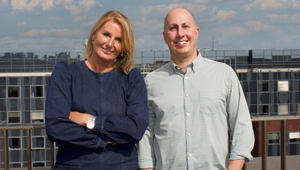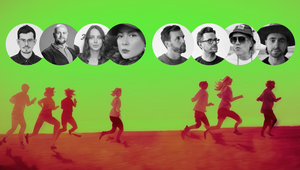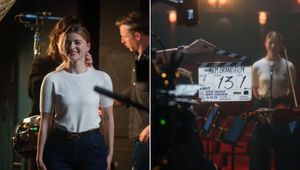
The Behavioural Science of Creating Connections While Social Distancing

Humans have evolved over six million years to cope with challenges, so we’re better equipped to handle the current situation than we might think. In fact, behavioural research shows opportunities for brands who focus on positive behaviours to rewire the role they play in people’s lives.
The effort to control the Covid-19 pandemic has sent shockwaves through society, affecting people and businesses. While the impact on the economy is immediate, the effect on culture will take a long time to play out. It also offers incredible opportunities for individuals and businesses to act positively and make a difference.
First, while we have to physically distance, now is the time to cultivate social relationships.
Talking to each other over FaceTime does not transmit viruses; handshaking does. The challenge, therefore, is to create social interactions without physical closeness, and there are many ways in which we can do that. Browser extensions such as Netflix Party – which claims 500,000 users already - let us watch TV and movies in real-time with our friends.
Online gaming has benefitted dramatically from people’s need to connect socially. Nintendo’s Animal Crossing: New Horizons lets us escape to an island and populate it with friends. Like Farmville before it, its social component has helped the game claim the top spot on the official UK games chart. This popularity persuaded clothing companies like High Snobiety to create ranges for people to dress their avatars.
When we’re not gaming, we’re spending much more time in online meetings, which gives us the ideal opportunity to perfect our video conferencing etiquette. Since we’re not physically present, we often only half-engage with our virtual meetings - we’re usually multitasking and even sometimes cooking lunch while on the line. Once, a kid or pet bursting in an online interview could become a viral hit; now many of us are juggling personal lives while Zooming.
Nevertheless, treating virtual meetings like the real thing can make them more engaging and efficient. Looking at each other, using cues like nodding or saying ‘hmm’ send important social signals. At VMLY&R, we’re trying to shorten most of our meetings to give people flexibility with their schedule and make virtual meetings more efficient and less tiring.
Second, neuroscience provides valuable insights for brands to create new connections in these challenging times.
In times of crisis, people also seek familiarity rather than novelty. This was published in the 60s by renowned psychologist Robert Zajonc, who argued that familiar things are liked because they signal safety. Brands, therefore, need to give comfort to a society under stress and meet people where they are, rather than trying to disrupt their lives. Heinz smartly launched a direct to customer service in the UK, Heinz to Home, bringing customers familiar and essential products to their door when they may be struggling to find them elsewhere.
Psychological research has also shown that people tend to believe that things will go well for them – even if they are pessimistic about the world around them. This inner optimism is excellent for mental health and business. And in uncertain times, brands and businesses can help cultivate our inner optimism by focusing on the things that they can control and positive information.
Rightfully, retailers have communicated clearly that there is enough supply for everyone and they’ve appealed to people’s altruism and sense of fair-play, with shopping hours in supermarkets dedicated to people at risk and limiting the numbers of high-demand items individuals can buy. The human brain is likely to ignore bad news anyway.
EE, Dove and Pret-A-Manger offer discounts, free products and special services to key workers. Dyson now makes ventilators, Burberry and Barbour produce PPE, Diageo bottle hand sanitizers. And many other brands and businesses are stepping up and helping, which if done authentically, will have a positive long-term effect on their relationship with the brands as neuroscience has long established that in a healthy person’s brain ‘good news’ is better coded and stored than ‘bad news’.
Finally, businesses can tap into people’s sense of optimism and confirmation bias, which means that people seek information that supports their beliefs.
According to a recent Kantar survey, 78% of consumers expect companies to help them in their daily lives. And it doesn't have to all be serious, Adidas’ #hometeam initiative, in which athletes share workout ideas and ways to stay motivated – even with jokes – is an excellent example.
By deepening their empathy brands can identify what unique role they can play in people’s lives, now and most importantly in the future. Offering to help and listen to them as they try to get things done to see where we can play a role. Brewdog is offering everyone a free pint in one of their bars when they are able to re-open - simple gestures, like gift vouchers, offer a way to invest in the prospect of a better future.
Ultimately, we will meet again. Until then, brands that clearly try to understand and meet the needs of their customers will be best placed to benefit from a return to economic confidence.















